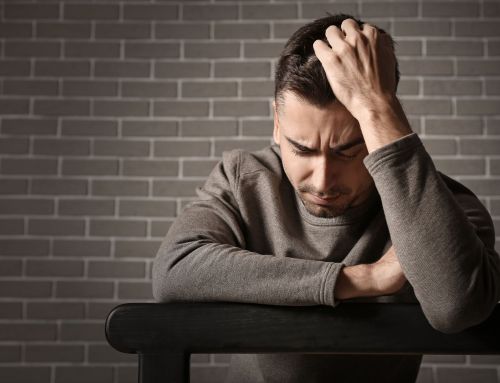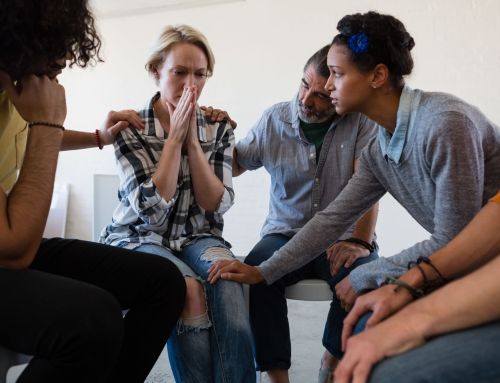
For many people, drug addiction is more than just an addiction; it becomes an identity in and of itself. When you’re struggling with addiction, getting into drug addiction therapy can seem like the ultimate relief from your self-destructive behavior.
The variety of treatments available may be overwhelming, but there are helpful resources that can help you understand each one and decide which drug addiction therapy approach will work best for you.
Here are seven effective drug addiction therapy treatments to help you overcome addiction once and for all.
1. Cognitive Behavioral Therapy
Cognitive Behavioral Therapy (CBT) is one of the most effective treatments for addiction, largely because it addresses all aspects of the disorder. It can be used with a variety of substances, including alcohol and prescription drugs like opioids.
CBT teaches clients how to identify and change unhealthy thoughts, feelings, and behaviors in order to build healthier patterns. For instance, an addict may learn how to avoid temptations or triggers that lead them back into addictive behavior.
CBT also includes family therapy sessions where family members can learn how they can support their loved one without enabling them or making matters worse.
2. Contingency Management
Contingency management is an addiction treatment program that rewards patients for staying drug-free. Patients are rewarded with something they want, like a new TV or iPad, as long as they have been drug-free for a certain amount of time.
If patients don’t meet the requirements for treatment, then the reward is taken away and the process starts again. Contingency management can be helpful in developing healthy coping skills because it provides an incentive for success.
3. Family Therapy
Family therapy is one of the most effective forms of drug addiction therapy. Family therapy addresses not only the individual but also the family and how they are affected by drug use.
Family therapy helps strengthen communication skills, identify triggers and patterns, solve problems together and reduce stress as a whole.
Family or couple counseling can be highly beneficial for individuals who are hesitant or cannot afford other types of drug addiction therapy.
Unlike some of the other treatments listed here, family counseling does not require any additional services such as medication or detoxification.
4. Group Therapy
Group therapy is an effective treatment for those who are struggling with addiction. In a group setting, addicts can share their experiences, strength, and hope with one another.
Group therapy also helps the individual realize that they are not alone in this struggle and that many others have gone through similar experiences. They are able to learn from one another’s mistakes and find out what works best in terms of recovery.
Group therapy is beneficial because the addict has constant support while they work towards overcoming their addiction. It also fosters accountability since it’s hard to lie or be dishonest when you know you will have to report back in front of the group members each week.
5. Individual Therapy
Individual therapy is one of the most commonly used treatments in drug addiction therapy programs.
In this form of therapy, you will meet with a therapist one-on-one and discuss your thoughts and feelings about addiction, what triggers your addictive behavior, and how to cope with emotions. This can help you learn more about your addiction and how it has impacted your life.
Individual therapy sessions are typically 45 minutes long, but they can be shorter or longer depending on the person’s needs.
6. Medication Assisted Treatment
Medication Assisted Treatment is one of the most effective treatment options for addiction. This form of treatment combines psychotherapy with medications that reduce the physical and psychological effects of withdrawal.
Methadone and Suboxone are two common medications used in this treatment, but other treatments exist as well.
The goal of this type of therapy is to stabilize a person’s sobriety so they can then work on other aspects of their life, such as addressing mental health issues, job problems, or family dynamics.
7. 12-Step Program
A 12-step program is an organization that offers recovery from addiction by following a set of guidelines. This is a self-help group for those with addiction and their families, where members help each other stay sober and work through their problems.
The 12-step program has helped many people overcome addiction over the years because it provides a support system and creates a new lifestyle for recovering addicts.
In this type of therapy, addicts learn how to change their thinking patterns as well as adopt healthier habits in order to live drug-free.
Find an Addiction Recovery Center Near Me in New Jersey
Treatments for addiction can differ depending on the person and their needs. These treatments vary in terms of length of stay and cost. It is important to find a program that is right for you based on your needs and budget.
If you are looking for the most reliable sober living homes in Northern New Jersey or an addiction recovery center near you in New Jersey, you may want to consider North Jersey Recovery Center.
We have specialized addiction treatment programs tailored to suit your unique needs and circumstances.
Contact us today to learn more about our programs!










